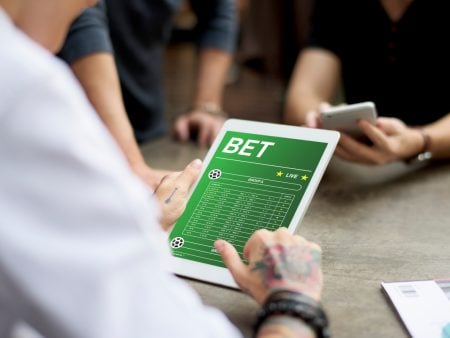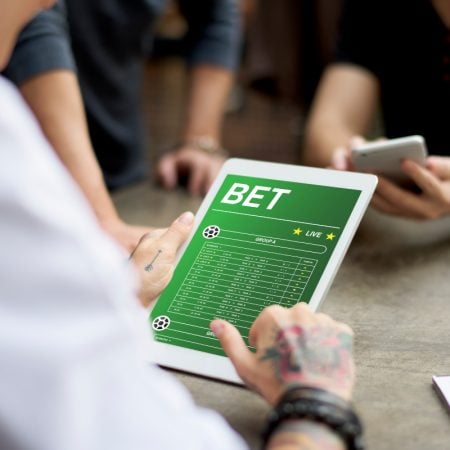When you place bets at a reputable online sportsbook in Florida, you are determining much more than possible winners; you are determining odds, percentages, and value. Most casual bettors go with gut feelings or perhaps blind guessing. That works sometimes, but over a long period of time, it takes more than that. One of the most important tools for smart betting and long-term success is implied probability.
Speaking of not needing a math genius, you should not need one to calculate the value of probabilities over a betting line. Every sportsbook line you see reflects a probability and the odds that there and and perceived value. If you do not like odds working in your favor, that is the challenge to you. You do not need to be a genius, but the most important tools of math are.
Specific to betting, you are probably new or trying to tighten up your betting style. You are going to learn how to calculate implied probability, spot value, navigate avoidance to predicated common traps, and then build sharper and new productive habits. We are going to learn a great deal from historical context, practical case studies, stepwise guides, and futuristic approaches to assumptions.
When you place more than a few bets at a Florida sportsbook online, and you are trying to increase the chances of winning or place more than a few bets at a time, this knowledge is not optional. It is a matter of survival.
Understanding the Core Concepts
Implied probability has existed as long as betting itself has existed. Long before online sportsbooks or dedicated betting mobile apps, gamblers had to appreciate the odds that a bookie was offering. With them, it was conversations followed by handwritten records. It’s now computerized, more rapid, and incredibly more available than before, but the basic numerical principles have evolved very little.
Implied probability works by taking betting odds and converting them to percentages. The odds and percentages that follow are determined by the bookmaker and define the event’s probability as they see it. In addition, it forecasts whether the bookmaker’s odds are genuine, or rather, more customized toward the bookmaker’s profit.
Let’s make it simple:
- Implied probability from decimal odds: 1 ÷ odds.
- Implied probability from fractional odds: Denominator ÷ ( Denominator + Numerator )
- In the case of positive American Odds: Implied probability = 100 ÷ ( Odds + 100 )
- In case of negative American Odds: Odds ÷ Odds + 100.
For example, if a team is listed at +150, the implied probability is 100 ÷ (150 + 100) = 40%. For a value bet, you need to believe that the team has a better chance of winning than 40%.
Knowing how to do the conversions is very important. Without it, you are just working with numbers.
Comprehensive Analysis
1. Why Implied Probability Matters
Implied probability is a powerful tool used to manage risk. You no longer act on impulse; instead, you evaluate the sportsbook’s line against your own. That disagreement is where you locate value. Winning isn’t assured; value means the situation is favorable over time.
2. Mechanics of Implied Probability
Understanding the conversions is only the first step. You also have to know how to reverse-engineer lines, find discrepancies and apply them in real time.
For example, let’s say you think a certain team has a 60% probability of winning. The sportsbook has them at -110 odds (implied probability 52.4%). At that price, you seem to have a better line than the true odds, so you have found a value bet.
It’s one thing to do the math and another to do so quickly. While spreadsheets and calculators still help, seasoned bettors have patterns embedded in their brains.
3. Using Implied Probability for Different Bet Types
Making bets doesn’t only have win/loss outcomes. Moneylines and point spreads and pavlies and props and spreads and futures all have probabilities. They all differ in difficulty.
Spreads and Totals: These two are often set around 50/50 tossups. Deciding what ‘juice’ (vig) to pay involves this form of probability.
Futures: They displayed the most disparity in actual probability vs. implied. Realistically, what does +2000 mean? 4.76% chance? You’d assume it to be 10%? Value is available.
Parlays: Unlike single bets, the implied probability of winning a parlay is much lower, as all bets must be won. It is extremely important to calculate the true probability compared to the payout.
4. Mobile Sportsbook Strategy Integration
While betting on a mobile sportsbook in Florida, the odds may be converted to one of your preference, but the interface lacks the implied probability of those odds. This means that, to some extent, you will have to perform some level of conversion.
Use the following as a guide:
- Change the odds
- Match to your own assessment
- Only place the bet if your prediction is superior to that of the sportsbook
This changes betting from a game of chance to one of rigor and routine.
5. Common Challenges and Smart Fixes
Overestimating Edge: Lots of bettors think they have an “edge” because they “feel” a team is undervalued. Quantify your edge.
Misreading Odds Format: Errors often arise when switching to a new format. Choose one, and if needed, refer back to a calculator.
Ignoring Vig: The margin of consideration is a bookmaker‘s. The implied probabilities of both outcomes will often equate to more than 100%. This is the vig. Always account for this.
Chasing Losses: Losses will happen, no matter how good your math is. Focus more on your strategy and your bankroll. Zero tilt.
Practical Guide: How to Apply Implied Probability Daily
Get a Reliable Odds Converter
Use whatever you want, including tools and simple Excel sheets. If possible, download and convert every single format there is.
Track Your Bets
Use a spread sheet or a tracking program to keep records of your wager, odds, implied and estimated probability. This helps you practice self control and self evaluation.
Develop Your Own Lines
Use statistics, injurious patterns, or other methods to determine the chance of winning. Measure your estimates with the odds a sportsbook gives you.
Bet Selectively
Make it an objective to bet only on the events that seem to have an actual and implied discrepancy.
Monitor Closing Line Value (CLV)
CLV is the exact quote of the last bet on a market divided by what you wagered and placed on that market. Being able to beat the final line is reliable proof that you will do well for an extended period.
Best Practices Checklist
- Always convert odds before betting
- Never bet emotionally
- Keep a betting journal
- Use the same methodology across all sports
- Review bets weekly
- Factor in vig
- Don’t chase losses
Frequently Asked Questions
Q: What is implied probability in sports betting?
A: It’s how much likelihood the sportsbook thinks an outcome has and how much the odds are for it. It helps bettors analyze worth.
Q: How do I calculate implied probability from American odds?
A: In positive odds: 100 / (odds + 100). In negative odds: odds / (odds + 100).
Q: What is value betting?
A: Betting when the probability of winning your bet is much greater than the probability implied in the odds. It’s more about an edge in the long run than winning a bet in the short run.
Q: Can implied probability help with parlays?
A: Sure, but the odds are stacked in such a way for parlays that it lessens your odds overall. Use implied probability to figure out the actual risk/reward.
Q: Is implied probability useful for live betting?
A: Of course, the odds change in real time, so with some calculations, you can figure out value opportunities.
Q: How does vig affect implied probability?
A: It doesn’t change. Any sports betting center must inflate probabilities, so you must adjust for it to analyze value.
Q: Can I automate implied probability analysis?
A: Sure, spreadsheets, odds tracking tools, or systems with access to real-time odds calculation APIs can be used to automate implied probability calculations.
Q: How Discipline and Control Shape Success in Florida Sportsbooks?
A: Bettors who stay within their strategy, manage their bankroll, and avoid emotional decisions often succeed. Especially when using a Florida online sportsbook, discipline ensures you only bet when the odds truly favor you. Over time, that approach outperforms erratic betting.
Q: Why do implied probabilities for both teams add to more than 100%?
A: Because of the vig (margin). Sportsbooks build in a profit buffer.
Q: How often should I update my betting model?
A: Weekly or after major events (injuries, trades). Fresh data improves accuracy.
Case Studies
Success: Smart Futures Betting
For one NBA future bet, a bettor had a proprietary estimate of a certain underdog team’s title chance at 12%. The sportsbook offered a line of +1200 (7.69%). They conducted due diligence and compared the odds, and then decided to place a $500 bet. The team reached the finals, and the bettor profited by cashing out early. What’s the secret? Objective analysis and implied probability alignment.
Failure: Misjudged Parlay
A person was feeling lucky and placed a 5-leg parlay bet on some NFL games without giving it much thought. Even though the games were poorly selected, the payout promises were high. Word of advice, these hopeful bets should be avoided. Guess the winnings never brought it home cause the 3rd leg lost. Simply reinforced the odds were less than 4%. A post review on the best showing, hope was all there was no structure.
Lesson: Feelings aren’t a strategy. Math is.
Future Considerations
As betting technology gets more advanced, implied probability gets more attention. There are more tools nowadays that automatically calculate value, display vig impact, and even predict line movement. In no time, AI systems will be able to predict probabilities even better than humans. Smart bettors will integrate machine tools along with their insight.
Also, expect sportsbooks to be sharper. Available models to the public means that books adjust faster, which narrows the value window. So, speed and accuracy are more important than ever.
In order to stay ahead, one has to constantly change their techniques, refine their edge, and utilize all the tools available.
Turn Odds Into Insight
Mastering implied probability changes how an individual invests. You stop guessing. You start evaluating. Not every bet wins, but every bet has purpose. That’s how pros operate.
Stick to your process. Keep refining your edge. Track your progress, analyze the data, and keep your finger on the pulse of the industry. If you are using a Florida sportsbook online, it’s not luck that’ll get you to the winner’s circle—it’s skill, self-control, and math.
Start collecting newsletters, follow sharp analysts, and keep educating yourself. The edge is there; you just need to find it and deploy it.
Next bet? Make sure it’s a sure bet, not a hopeful one.












